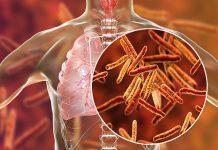
(Editor’s note: In the previous part of the topic, the tips were numbered while the habits were bulleted under each tip. Here, the habits have been numbered for better comprehension).2
Here is the concluding part of a topic I started last month (if you missed it, check last month’s edition for the first sets of habits). A healthy lifestyle is tough to sustain, but when broken down into bite-sized healthy habits, they become routine activities that soon become your lifestyle.
So, underneath these tips for successful diabetes management are habits that, once formed, make the management of diabetes a walk in the park.
Tip: Take medicines as prescribed
You should take your medications as prescribed by your physician. Side effects from taking the drugs may arise, but this should not prevent you from taking your prescribed medications. Instead, inform your doctor immediately.
Habits:
- Set reminders for your medication:
Many times, you could forget to take your medications. This habit will reduce when you set daily reminders and take drugs at a specific time every day.
- Keep medications in likely places:
Sometimes, it is not enough to set reminders. It is also a good idea to keep your medications in places where you are most likely to be when it is time to take them, whether at home, in the office or the car. This way, your medications are within arm’s reach, so you have little to no excuse.
- Keep a personal record of your drugs and their side effects:
Keep a written or typed record of all the medications (diabetes and non-diabetes) you are taking at a particular time. Also, look out for side effects and adverse reactions and note them down. Report to your doctor immediately or at your next appointment
Tip: Exercise regularly
Physical activity and exercises help your body to efficiently utilise glucose, as well as helping to regulate insulin levels. These help to lower your blood sugar level. The more exerting your work out is, the longer the effect. However, be careful not to overdo it; talk to your doctor about the most appropriate exercise plan for you.
Habits:
- Stick to a feasible exercise plan:
Develop an exercise plan that seamlessly fits into your daily routine. For example, you could decide to walk for 30 minutes at a stretch or break it down to 15 minutes twice daily. If your goal is to strengthen your muscles, activities like weight lifting or resistance exercises will serve you better.
However, this will involve visiting the gym or having the necessary equipment. If you prefer the gym, sign up with a gym close to where you live. Or one that shares the same route you take to carry out most routine activities like work, market/malls or a relaxation spot. This way, you can smoothly fit your gym appointments with your other activities.
- Take water breaks
Dehydration affects blood sugar levels, so drink enough water while exercising.
Tip: Quit smoking and Alcohol Consumption
Do you smoke? Then you should quit. To make it easier, pick a date to quit smoking. Doing this prepares you for it both mentally and physically. Join support groups and programmes that promote cigarette quitting and relevant wellness centres.
Often, you will have to quit drinking or reduce alcohol consumption to the minimum. Get your doctor’s opinion on whether you should discontinue or regulate alcohol consumption.
Habits:
- Avoid daily stress:
Cutting down on stress levels promotes successful diabetes management in two ways. First of all, stress raises blood sugar. So, by effectively managing it, you are directly doing your health a favour. Secondly, stress can lead you to make poor food choices and binge on alcohol or pick up smoking again. These are bad for diabetes.
- Never drink alcohol on an empty stomach:
If your doctor okays your alcohol consumption, make it a habit to take alcohol only with food – never on an empty stomach because alcohol can reduce blood sugar levels. Also, always have some water close because of the thirst that results from alcohol consumption. It is also safe to note that, compared with other alcoholic drinks, light beers and dry wines contain fewer calories and carbohydrates.
By Pharm. (Dr) Onyinye Chiekwe












